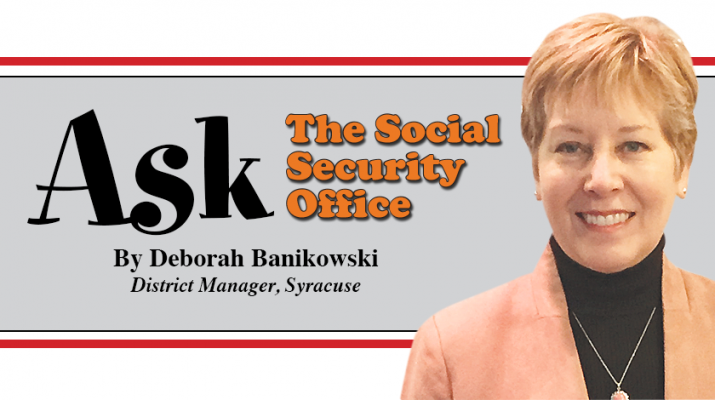By Deborah Banikowski
In 2017, more than a million people will be diagnosed with cancer around the world. This alarming statistic affects people and families everywhere. Chances are, you know someone who has been affected by this terrible disease.
On June 4, we observe National Cancer Survivors Day in the United States. In support of this day, Social Security encourages getting checkups to provide early detection, raise awareness through education and recognize the survivors who have gone through this battle or are still living with the disease.
Social Security stands strong in our support of the fight against cancer. We offer services to patients dealing with this disease through our disability insurance program and our compassionate allowances program. Compassionate allowances are cases with medical conditions so severe they obviously meet Social Security’s disability standards, allowing us to process the cases quickly with minimal medical information. Many cancers are part of our compassionate allowances list.
There’s no special application or form you need to submit for compassionate allowances. Simply apply for disability benefits online, in-person or over the phone. Once we identify you as having a compassionate allowances condition, we’ll expedite your disability application.
Social Security establishes compassionate allowances conditions using information received at public outreach hearings, from our employees, who review millions of disability cases each year, from medical and scientific experts, and from data based on our research. For more information about Compassionate Allowances, including the list of eligible conditions, visit www.socialsecurity.gov/compassionateallowances.
Social Security is with you throughout life’s journey, through good times and bad. If you think you qualify for disability benefits based on a Compassionate Allowances condition, please visit www.socialsecurity.gov to apply for benefits.
Q&A
Q: My same-sex partner and I recently married. Will we qualify for Social Security benefits?
A: You may be eligible to apply for Social Security benefits. Many factors affect your eligibility for benefits, including how long you worked and your age. Social Security is now processing more claims in which entitlement or eligibility is affected by a same-sex relationship. We encourage you to apply for benefits right away, even if you aren’t sure you’re eligible. Applying now will protect you against the loss of any potential benefits. You can apply safely and securely at www.socialsecurity.gov/applyonline. Learn more about Social Security for same-sex couples by visiting www.socialsecurity.gov/same-sexcouples.
Q: I worked the first half of the year, but plan to retire this month. Will Social Security count the amount I earn for this year when I retire?
A: Yes. If you retire mid-year, we count your earnings for the entire year. We have a special “earnings test” rule we apply to annual earnings, usually in the first year of retirement. Under this rule, you get a full payment for any whole month we consider you retired regardless of your yearly earnings. We consider you retired during any month your earnings are below the monthly earnings limit, or if you have not performed substantial services in self-employment. We do not consider income earned, beginning with the month you reach full retirement age. Learn more about the earnings test rule at www.socialsecurity.gov/retire2/rule.htm.
Q: How do I know if I have worked long enough to qualify for Social Security disability benefits?
A: You must have worked long enough — and recently enough — under Social Security to qualify for disability benefits. Social Security work credits are based on your total yearly wages or self-employment income. You can earn up to four credits each year. The amount needed for a credit changes from year to year. The number of work credits you need to qualify for disability benefits depends on your age when you become disabled. Generally, you need 40 credits, 20 of which you earned in the last 10 years, ending with the year you become disabled. However, younger workers may qualify with fewer credits. To learn more, see our Disability Planner at www.socialsecurity.gov/dibplan/dqualify3.htm.
Q: I’m applying for disability benefits, and I read about “substantial gainful activity.” What is that?
A: The term “substantial gainful activity,” or SGA, is used to describe a level of work activity and earnings. Work is “substantial” if it involves doing significant physical or mental activities or a combination of both. If you are working and earn more than a certain amount, we generally consider that you are engaging in substantial gainful activity. In this case, you wouldn’t be eligible for disability benefits. You can read more about how we define substantial gainful activity at www.socialsecurity.gov/OACT/COLA/sga.html.

